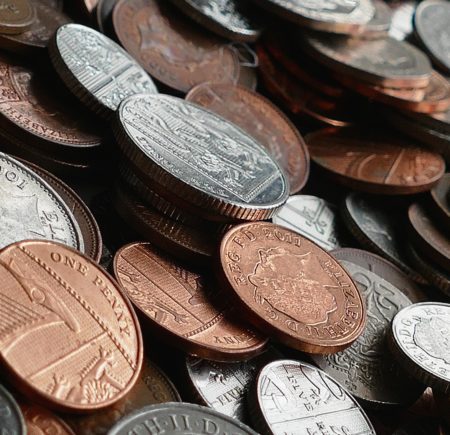

Energy Intensive Industries: What help is available?
Seeking an EII certificate via the EII exemption scheme can help alleviate the increasing expenses of energy for industries with substantial energy consumption. This article offers valuable insights into the EII scheme, addressing common questions about the Energy Intensive Industries (EII) exemption scheme to help businesses understand if it’s the right energy tax relief scheme for them.
What does EII mean?
EII stands for Energy Intensive Industries. The UK Government defines Energy Intensive Industries as “industrial sectors – usually manufacturing industries – that are high users of energy”. Energy Intensive Industries have a high proportion of fuel energy costs over other costs such as labour, as part of their overall production costs.
What is the Energy Intensive Industries (EII) exemption scheme?
The UK Government supports high energy usage business with their electricity costs through the Energy Intensive Industries (EII) exemption scheme. The scheme is a form of energy tax relief that allows eligible companies to reduce their energy bills through an exemption on taxes that fund low-carbon and renewable support schemes. Energy Intensive Industries tend to be manufacturers with automated processes or large machinery, such as cement factories or fertiliser producers.
Why was the Energy Intensive Industries (EII) scheme created?
Businesses’ electricity bills include a series of taxes that fund renewable energy schemes, which help pay for the UK Government’s Net Zero Strategy for decarbonising the UK economy by 2050. These renewable energy schemes fund renewable energy generation (solar, wind, solar, hydro and nuclear power). There are three different schemes:
- Contracts for Difference (CfD)
- Renewables Obligation (RO)
- small-scale Feed-in Tariffs (FIT)
These taxes put UK businesses at a competitive disadvantage internationally, therefore there is a risk that these firms could move production abroad to countries with lower carbon taxes. This is known as ‘carbon leakage’ and would defeat the point of trying to cut global greenhouse gas emissions. To lower the risk of carbon leakage, the UK Government created the Energy Intensive Industries (EII) exemption in 2016. The EII scheme partly mitigates the impact of renewables policies allowing businesses to stay competitive internationally.
Is the Energy Intensive Industries (EII) exemption scheme a compensation scheme?
The short answer is no. The EII scheme reduces energy related taxes levied on electricity supplies by exempting eligible companies from having to pay by providing them with an exemption certificate. There is a separate UK Emissions Trading Scheme (UK ETS) that acts as a compensation scheme where you receive periodic compensation payments.
What is an EII certificate?
The UK Government offers relief for Energy Intensive Industries in the form of an EII certificate, exempting them from the indirect costs of renewable energy taxation schemes. Qualifying businesses receive an EII certificate, which confirms that they are eligible for Contracts for Difference (CfD), Renewables Obligation (RO) and small-scale Feed-in Tariffs (FIT) exemption. To receive the exemptions businesses must pass the EII certificate to their electricity provider.
What are the eligibility requirements for the EII exemption scheme?
The UK Government guidance lists two tests for determining whether a business is eligible for an EII certificate. These include:
- The “sector-level” test: The business must manufacture a product in the UK within an eligible sector that has a specific 4-digit NACE code (see the below section on qualifying sectors)
- The “business-level” test: The business must pass a 20% electricity intensity test
Beyond these tests, businesses must also demonstrate they would not break state-aid rules if awarded relief, as well as providing a minimum amount of data when applying for a certificate.
What sectors qualify for the Energy Intensive Industries (EII) scheme?
The scheme supports manufacturing at various stages of production, from quarrying ore all the way up to creating a semiconductor chip. Qualifying sectors and industries include:
- Quarrying
- Metal production
- Metal processing and casting
- Chemicals and fertilisers
- Plastics, both primary production and final products
- Rubber products
- Oil refining
- Batteries and semiconductors
- Wood, paper and pulp
- Glass and ceramics
- Cement and Refractory products
- Animal feeds and grain milling
- Poultry production
How long is an EII certificate valid for?
EII certificates are valid for one year. Businesses must reapply for a certificate on a yearly basis, applying for a new one before their current certificate expires.
How much will my business receive through the EII exemption scheme?
Businesses eligible for the Energy Intensive Industries exemption scheme can receive between £30-35 / MWh for each qualifying unit of electricity. This is roughly 10% of summer 2023 electricity prices.
How long will the UK Government run the EII exemption scheme?
The UK government recently committed to increasing the subsidy to allow the full 100% exemption to be applied to qualifying supplies (from the current 85% maximum entitlement). They have gone further than this, legislating to increase the payments by levying an “EII subsidy”, which would further compensate eligible business.
Are there any examples of successful EII exemption scheme applicants?
There are currently over 300 successful applicants to the EII exemption scheme. Our team has experience successfully delivery nearly 10% of all claims submitted since the scheme started.
Is the EII exemption scheme the right energy tax relief scheme for my business?
Our team can assess your business and help guide you to the right relief scheme. There are several schemes available and some business can qualify for several, making substantial savings. The schemes are independent of each other and businesses can apply and be awarded a certificate for more than one energy tax relief scheme.
How can my business apply for EII exemption?
By getting in touch with our team today! We have a wealth of experience in energy tax relief and will guide you through the process to maximise your benefit. Call us on 020 3523 9125 or email info@bonhamandbrook.co.uk.


